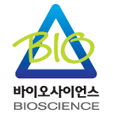Laboratory Safety
Laboratory Protocol
Part 1 Basic Laboratory Techniques for Isolation, Cultivation, and Cultural Characterization of Microorganisms
1. Culture Transfer Techniques
2. Techniques for Isolation of Pure Cultures
3. Cultural Characteristics of Microorganisms
Part 2 Microscopy
4. Microscopic Examination of Stained Cell Preparations
5. Microscopic Examination of Living Microorganisms Using a Hanging-Drop Preparation or a Wet Mount
Part 3 Bacterial Staining
6. Preparation of Bacterial Smears
7. Simple Staining
8. Negative Staining
9. Gram Stain
10. Acid-Fast Stain
11. Differential Staining for Visualization of Bacterial Cell Structures
Part 4 Cultivation of Microorganisms: Nutritional and Physical Requirements, and Enumeration of Microbial Populations
12. Nutritional Requirements: Media for the Routine Cultivation of Bacteria
13. Use of Differential, Selective, and Enriched Media
14. Physical Factors: Temperature
15. Physical Factors: pH of the Extracellular Environment
16. Physical Factors: Atmospheric Oxygen Requirements
17. Techniques for the Cultivation of Anaerobic Microorganisms
18. Serial Dilution—Agar Plate Procedure to Quantitate Viable Cells
19. The Bacterial Growth Curve
Part 5 Biochemical Activities of Microorganisms
20. Extracellular Enzymatic Activities of Microorganisms
21. Carbohydrate Fermentation
22. Triple Sugar—Iron Agar Test
23. IMViC Test
24. Hydrogen Sulfide Test
25. Urease Test
26. Litmus-Milk Reactions
27. Nitrate Reduction Test
28. Catalase Test
29. Oxidase Test
30. Utilization of Amino Acids
31. Genus Identification of Unknown Bacterial Cultures
Part 6 The Protozoa
32. Free-Living Protozoa
33. Parasitic Protozoa
Part 7 The Fungi
34. Cultivation and Morphology of Molds
35. Yeast Morphology, Cultural Characteristics, and Reproduction
36. Identification of Unknown Fungi
Part 8 The Viruses
37. Cultivation and Enumeration of Bacteriophages
38. Isolation of Coliphages from Raw Sewage
39. Propagation of Isolated Bacteriophage Cultures
Part 9 Physical and Chemical Agents for the Control of Microbial Growth
40. Physical Agents of Control: Moist Heat
41. Physical Agents of Control: Electromagnetic Radiations
42. Chemical Agents of Control: Chemotherapeutic Agents
43. Determination of Penicillin Activity in the Presence and Absence of Penicillinase
44. Chemical Agents of Control: Disinfectants and Antiseptics
Part 10 Microbiology of Food
45. Microbiological Analysis of Food Products: Bacterial Count
46. Microbial Fermentation
Part 11 Microbiology of Water
47. Standard Qualitative Analysis of Water
48. Quantitative Analysis of Water: Membrane Filter Method
Part 12 Microbiology of Soil
49. Microbial Populations in Soil: Enumeration
50. Isolation of Antibiotic-Producing Microorganisms and Determination of Antimicrobial Spectrum of Isolates
51. Isolation of Pseudomonas Species by Means of the Enrichment Culture Technique
Part 13 Bacterial Genetics
52. Enzyme Induction
53. Bacterial Conjugation
54. Isolation of a Streptomycin-Resistant Mutant
55. The Ames Test: A Bacterial Test System for Chemical Carcinogenicity
Part 14 Biotechnology
56. Bacterial Transformation
57. Isolation of Bacterial Plasmids
58. Restriction Analysis and Electrophoretic Separation of Bacteriophage Lambda DNA
Part 15 Medical Microbiology
59. Microbial Flora of the Mouth: Determination of Susceptibility to Dental Caries
60. Normal Microbial Flora of the Throat and Skin
61. Identification of Human Staphylococcal Pathogens
62. Identification of Human Streptococcal Pathogens
63. Identification of Streptococcus pneumoniae
64. Identification of Enteric Microorganisms Using Computer-Assisted Multitest Microsystems
65. Isolation and Presumptive Identification of Campylobacter
66. Microbiological Analysis of Urine Specimens
67. Microbiological Analysis of Blood Specimens
68. Species Identification of Unknown Bacterial Cultures
Part 16 Immunology
69. Precipitin Reaction: The Ring Test
70. Agglutination Reaction: The Febrile Antibody Test
71. Enzyme-Linked Immunosorbent Assay
72. Sexually Transmitted Diseases: Rapid Immunodiagnostic Procedures
Appendix 1. Scientific Notation
Appendix 2. Methods for the Preparation of Dilutions
Appendix 3. Microbiological Media
Appendix 4. Biochemical Test Reagents
Appendix 5. Staining Reagents
Appendix 6. Experimental Microorganisms




